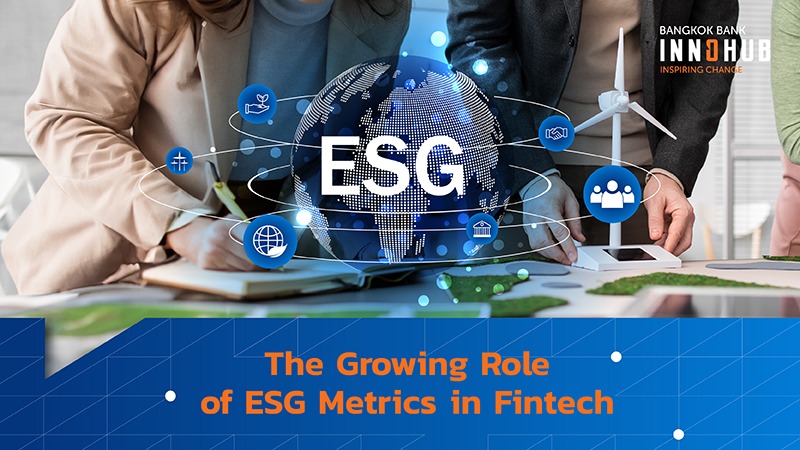Though the engine of the Fintech industry remains in information technology, two widespread cultural developments are radically reshaping the trajectory of the sector.
The first involves a growing social awareness surrounding issues of environmental responsibility, as well as economic justice and fair representation across demographics. This awareness, when amplified by social media, has sparked a wave of activism on these topics which tends to influence the customer bases of Fintech companies as well as their own employees.
The second cultural shift is closely related, and also has its origins at least partly in social media. A generation ago, companies may have tried to cut corners on issues of social responsibility and corporate governance, making exaggerated promises in their public statements and receiving little pushback in return from the legacy media organizations in which they advertised. Today’s embarrassing truths, however, are less likely to stay hidden — and far less easily brushed aside.
In short, companies in Fintech and elsewhere are expected not only to take ESG commitments seriously, but also to follow through on those commitments as a matter of ongoing policy. Customer loyalty and employee motivation moving forward will depend, in large part, on how well each organization is seen to adhere to these ideals. Here we explore the legal, technical, strategic, and cultural implications of a renewed focus on ESG in Fintech.
Aligned incentives
Cultural forces extend even beyond consumers and employees, pervading every aspect of business and society. Accordingly, Fintech and other sectors have seen rising pressure from regulators, investors, and tax authorities alike — all pushing them to step up their ESG commitments.
Moreover, as with the other stakeholders mentioned above, these institutions cannot be easily misled via overpromising and underdelivering. Informal ESG strategy without formal governance and controls, materiality assessments, KPIs, and assurance are simply not enough to meet expectations anymore.
Fortunately for Fintech companies, there is one more stakeholder whose intrinsic incentives favor the pursuit of ESG ideals: The businesses themselves.
Direct benefits of ESG-themed business strategy include the ability to more successfully identify new business opportunities. Where culture goes, markets follow — giving a competitive advantage to Fintech companies that are well attuned to consumer sentiment. Moreover, social fairness and healthy corporate governance yield more well-rounded, motivated teams, regardless of whether or not such features are trendy. In addition, ESG data can be used to improve risk management practices and enhance decision-making.
These advantages largely explain why, according to a recent Deloitte report, ESG-focused Fintech organizations are better positioned to grow rapidly, innovate, and attract investment, when compared to their less ESG-inclined counterparts. According to that report, fully half of professionally managed assets globally will be selected at least in part for their adherence to ESG ideals. The report also notes that 90% of Gen Z consumers prefer to buy products that bring social or environmental benefits, and 94% expect companies to engage with social or environmental issues.
But embracing ESG as a concept is only the first step toward actually achieving its goals. What follows are some points to consider while developing and implementing a formal ESG strategy.
Practical steps toward applying ESG principles in Fintech
- The allocation of resources – both financial and human – may be demanding, especially for smaller fintech startups with limited budgets. But these challenges can be offset by the advantages that startups naturally have in such areas. Young companies have less-defined roles and processes, allowing for the easier integration of ESG-friendly practices into everyday operations.
- The proper collection and reporting of data requires a real investment in systems and processes, to ensure both security and transparency. Even if careful data handling weren’t required by Thailand’s PDPA, it would still be necessary as a way to earn customer trust and allow for reliable operations over time.
- Fintech companies must achieve alignment with stakeholder expectations, clearly communicating their ESG commitments rather than simply assuming agreement. Listening to feedback, then adapting and refining company targets as well as methods is necessary to earn community support.
- Careful compliance with regulatory bodies is also necessary for seamless operations. In many cases, valuable tax incentives are also available for companies that meet certain social or environmental thresholds.
- Internal training and messaging are needed for the establishment of a strong company culture that reflects and supports ESG ideals. Although wider cultural movements may have sparked the current focus on ESG in business, companies must nevertheless nurture a durable and proactive culture within their ranks.
From concept to reality
Many Fintech companies, having never before embarked on an ESG-themed cultural transformation, are inclined to hesitate at the outset, not knowing exactly how to move forward. But in broad terms, approaching an ESG project is the same as approaching any other large task.
Companies looking to improve ESG should study risks and opportunities, develop a roadmap and a clear delegation of responsibility, determine metrics for success, and then design and refine tactics for achieving each goal. Lastly, it is important not just to walk the walk, but to talk the talk as well — publicizing successes and future aims so as to earn continued support and goodwill.
Creativity helps when applying ESG principles, as each company faces different opportunities for doing good. An American Fintech company, to take one example of many, refuses to fund oil or gas projects, offers a zero-carbon footprint credit card, and plants a tree every time a customer makes a purchase.
Which ESG-friendly ideas will take hold among growing Fintech organizations in Thailand? Only time will tell, but the overall trend toward ESG can only have positive effects for both business and society.




